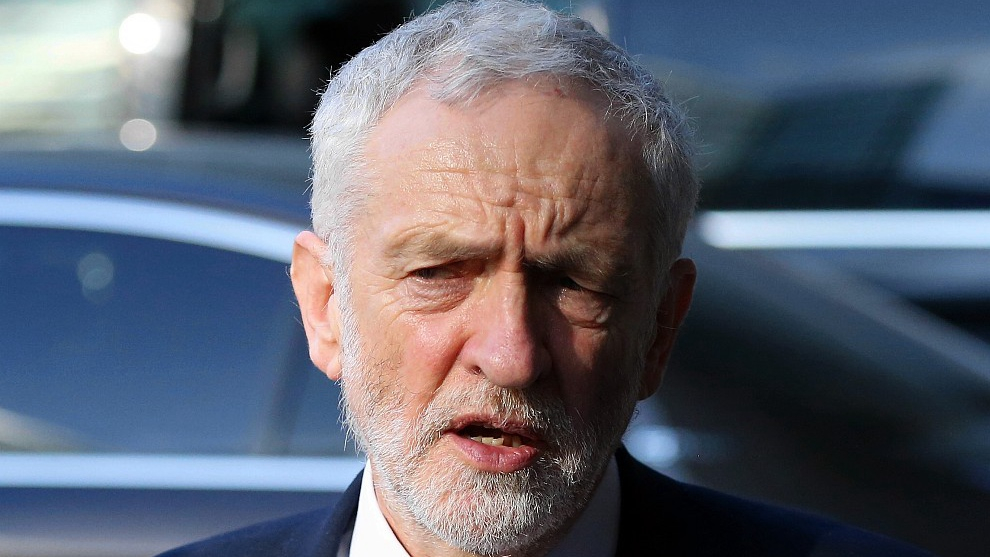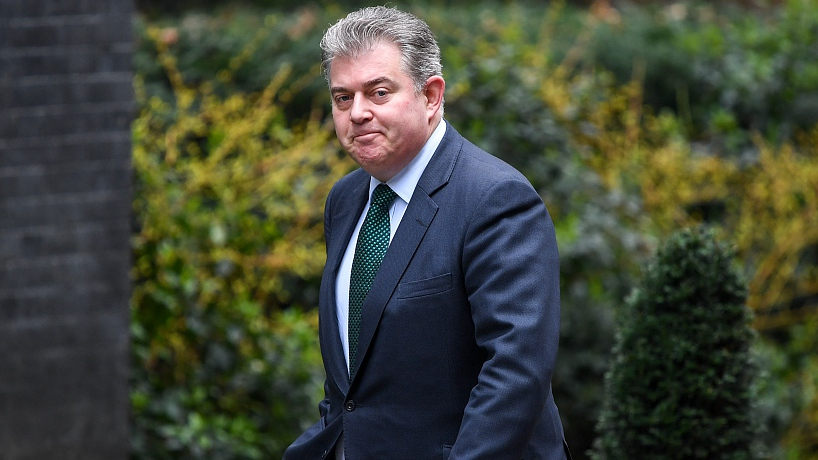
Opinion
08:16, 21-Mar-2019
Brexit and foreign policy: The UK government's quandary
Matthew Johnson

Editor's note: Matthew Johnson is a senior lecturer in politics at Lancaster University. The article reflects the author's views, and not necessarily those of CGTN.
Since the election of Tony Blair's New Labour in 1997, the UK government has pursued an interventionist foreign policy grounded in support of U.S.-led coalitions. This has been felt most profoundly by the Second Gulf War, the ongoing presence in Afghanistan, the bombing of Libya and support for anti-Assad forces in Syria.
While Blair's government promised an ethical foreign policy to prevent repeats of failures in Rwanda and the former Yugoslavia, the interventions have often appeared determined less by objective evaluations of human rights abuses and more by support for allies whose identities are, in turn, often determined by economic interests. The consequence has been a contradictory set of actions that have undermined the case for intervention in general.
Now, with the supposed deadline for Brexit approaching, the UK government is facing a series of quandaries over how best to promote Britain's interests.

The leader of Britains Labour Party, Jeremy Corbyn /VCG Photo
The leader of Britains Labour Party, Jeremy Corbyn /VCG Photo
Theresa May's emergence as prime minister stemmed from a reputation for decisiveness, stubbornness, and strength. Not only did she appear stronger than her Conservative rivals, but her first year in office was also spent in contrasting her prime ministerial qualities with the purported deficiencies of the peace campaigning Leader of the Opposition, Jeremy Corbyn.
As a consequence of the success of that strategy, the Conservatives called a snap general election to compound her parliamentary advantage and grant her a large enough majority to pursue a hard Brexit coupled with a nationalist foreign policy.
The intended consequence would have been to promote co-operation with a non-interventionist Trump regime and to reduce international commitments, including aid, which were increasingly regarded as unnecessary and immoral, at a time of austerity, by her electoral coalition in Britain.
However, the 2017 general election served solely to demonstrate Mrs. May's weaknesses, not just in terms of her ability to develop coherent domestic policy, to advance international coalitions and to develop a different national discourse away from that of her predecessors, but also in terms of her character.

Brandon Lewis, chairman of the Conservative Party, arrives for a weekly meeting of cabinet ministers at number 10 Downing Street, March 19, 2019. /VCG Photo
Brandon Lewis, chairman of the Conservative Party, arrives for a weekly meeting of cabinet ministers at number 10 Downing Street, March 19, 2019. /VCG Photo
Whereas once she was viewed as decisive, stubborn and strong, now she was hesitant, reactive and weak. For the first time in British politics, the election campaign was fought on a cult of personality for a candidate who appeared to have no personality.
All of the qualities attributed to May and her Cabinet were now rendered moot.
This has had a series of consequences: 1) negotiations with the EU are now grounded in recognition of May's weakness, to the point that the EU appears consistently to prop her up in order to preserve their own interests; 2) the UK increasingly acts as if embodying sycophancy toward President Trump personally, rather than the U.S. as a historically important ally; 3) Cabinet Members are constantly seeking to demonstrate their strength against a background of historic weakness in order to prop up the government, to jostle for position to succeed May and to avoid being further exposed internationally.
All of this has led to the recent diplomatic catastrophes that demonstrated Boris Johnson's unfitness for public office and Gavin Williamson's emergence as a school prefect somehow propelled into the international limelight.
Telling Russia to "shut up and go away" and then threatening China with a warship and "enhanced" "lethality" presumably made sense in Williamson's internal monologues but looked rather foolish to the rest of the human population. Put simply, they demonstrated the utter incoherence and weakness of the government as it begins to realize the mess in which it is now submerged.
The problem is that having set itself up as a nationalist, non-interventionist government driven by a desire to foster ever increasingly radical and disastrous patronage of private companies, the Conservative Party is now finding that divorce from the EU during the Trump presidency is leaving it separated from its natural allies in Europe and beholden to corporate interests that lead it back towards interventionism through its commitments to the Saudi and other regimes.

Boris Johnson, former U.K. foreign secretary, departs from the Cabinet Office on Whitehall in London, UK, March 19, 2019. /VCG Photo
Boris Johnson, former U.K. foreign secretary, departs from the Cabinet Office on Whitehall in London, UK, March 19, 2019. /VCG Photo
While a significant proportion of the population would appreciate the investment in starved sections of society and not being dragged into the expensive, futile conflict, the government's commitment to the small state, neoliberal economics prevents its taking steps to achieve those actions.
The promise of apparently lucrative trade deals sounds increasingly disingenuous given that the preconditions of those deals are to reduce working, production and consumer standards.
Put simply, having alienated itself from much of the world, the Conservative Party is steadily alienating itself from its population.
In the context of a parliament in which no meaningful policy has been passed for approaching two years, it is increasingly likely that a change of prime minister and a general election will lead to a Labour-led government with an entirely different set of international agendas. While Corbyn has been regarded as weak, it is unlikely that the reality of his emergent policy commitments will leave the UK weaker than it already is.
(If you want to contribute and have specific expertise, please contact us at opinions@cgtn.com.)

SITEMAP
Copyright © 2018 CGTN. Beijing ICP prepared NO.16065310-3
Copyright © 2018 CGTN. Beijing ICP prepared NO.16065310-3